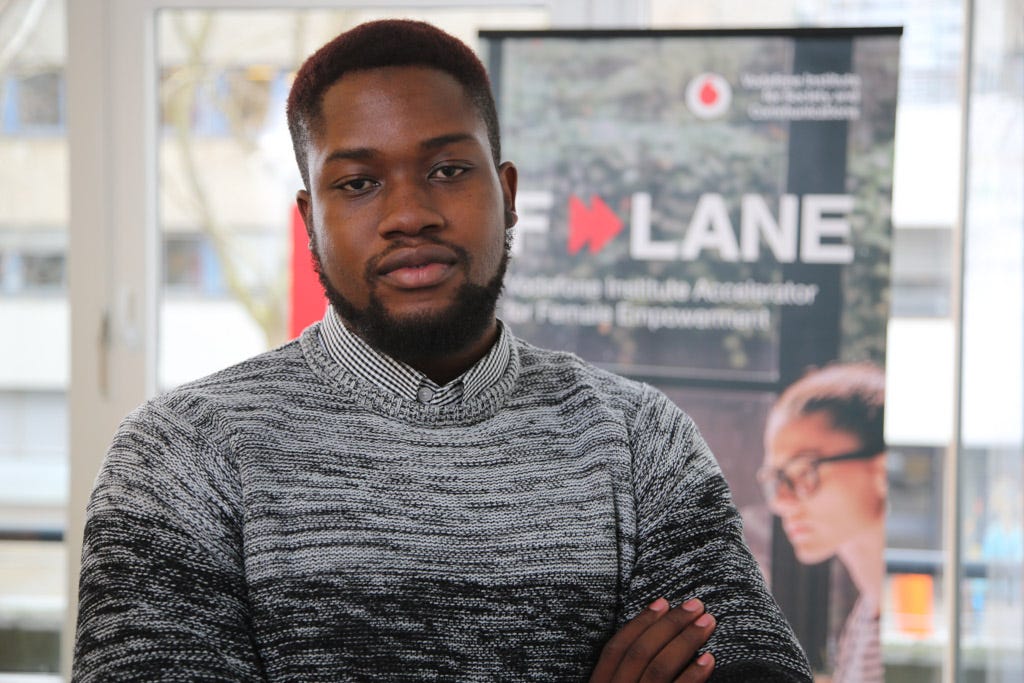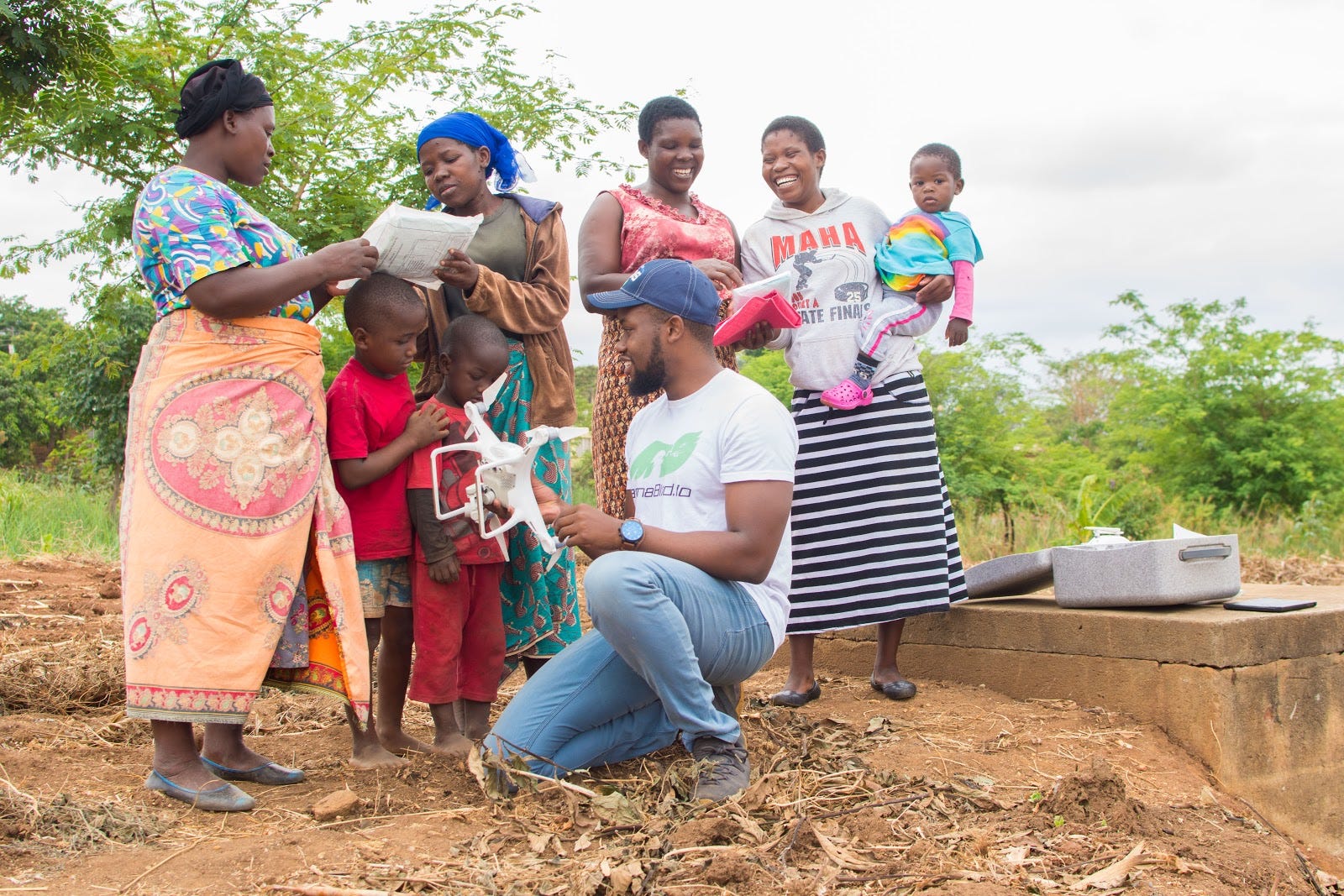Portrait of a GroundBreaker: Euguene Maseya
Eugene Maseya is the Co-Founder of MamaBird, a drone logistics social enterprise working to address health inequalities in rural Malawi. MamaBird is dedicated to lowering infant mortality rates and providing quality maternal care throughout the African continent. Mamabird delivers such life-saving supplies as clean birth kits, therapeutic foods, and clean bedding for newborns. Dedicated to women’s rights, Mamabird places women at the forefront of technological innovation in an effort to drive mindset shifts around gender roles in society. On this week’s feature of GroundBreakers’ Portraits of a GroundBreaker Series, our discussion with Eugene ranged from the gendered discrepancies within the STEM fields in Malawi to how the African continent is shaping the future of global technology.
How are innovations in African countries at the forefront of new technologies like drones and how do they influence the global future of technology?
I think that the African continent could lead in the future of technology because of the unique contexts and challenges of African countries. We could and are showing the rest of the world the way forward with regard to drone deliveries. The first humanitarian drone testing corridor in the world is in Africa. The corridor was launched in Malawi because the challenges faced here are unique with particular regard to health testing facilities in rural areas.
“We want to be a leading drone logistics provider for international aid organizations working in hard to reach areas, last mile areas, and places with large underserved populations. We have started off small with clean birth kits but we have many more plans going forward… to replicate our work to other contexts in the future through partnering with large international aid organizations in our expansion.”
How do you leverage partnerships in running MamaBird?
We collaborate with local governments including the Ministry of Health in Malawi and well as partner with international NGOs. We will be doing one of our first pilot runs at the end of December. UNICEF is running the drone testing corridor in Malawi and we will be testing out our drones in that corridor. We will be doing a few demonstrations for local governments and a few local NGOs.
Who are some of the people who inspire you in your work?
We now have a very strong support system in Germany and Europe in general. We have been inspired by the Dear Foundation and their work with women. They are focused on working with women with breast cancer in hard to reach areas. Zubaida Bai is also inspiring in her work developing low-cost products that significantly increase the chances of a mother and baby’s survival in the days following childbirth. Her work saves lives of babies in Southeast Asia and around the world. When we spoke with her, our minds first went to how drones could assist in carrying such products.
“I think that the African continent could lead in the future of technology because of the unique contexts and challenges of African countries. We could and are showing the rest of the world the way forward with regard to drone deliveries. The first humanitarian drone testing corridor in the world is in Africa.”
What are the gendered discrepancies in the STEM fields in Malawi?
In general, there is a negative attitude towards young girls in STEM fields. I see young girls thinking that STEM is for boys. When I fly drones for mapping in remote areas, the young boys are the ones who come when the drone lands because they are curious. The young girls always stand further away because they don’t think it’s meant for them. There are gendered underlying attitudes about robotics and engineering and mechanics in that it’s not seen as being meant for girls. We wanted to build a technology that addresses issues facing women and involves women in that solution.
Last March we were invited to participate in Vodafone F-Lane Venture, a six weeks accelerator program in Germany that focuses on startups working to address problems faced by women. We had a lot of female mentors that helped us understand our own mindsets and societal mindsets that can be harmful to women. We were feminists before but now we are more aware. We have a more well rounded view.
What did you want to be when you were growing up? Did you always see yourself in this kind of organization?
When I was young my Dad always used to say that I was an inventor because I always enjoyed making things. I went into mathematics and computer science in college but was always excited by robotics and unmanned flight. When I finished college, I decided to go into what I was passionate about. I then dedicated myself to working towards drone deliveries and the capacities of drones to address social issues.
I learn something new everyday and love the work that I do. There are difficult days and it is hard to run a start-up business, but I am trying to solve a problem with something I love and can’t imagine myself doing any different work.
What advice would you give to young people who want to become social entrepreneurs?
Follow your passion and the rest will fall into place. Always think of what the problems are and what you can do to help solve them. Take what you love and find a way to make an impact. For example, if you love coding or computer science, there are so many ways to take these skills and do good with them. If you are doing what you are passionate about, then you won’t burn out like you might in other jobs.

What are your thoughts on the future of social entrepreneurship in Malawi?
Social entrepreneurship in Malawi is growing but we seem to be behind other African countries such as Kenya and South Africa. I think with more social entrepreneurs in Malawi leading the way, more people will be inspired to take on social entrepreneurship. For example, I used to not know anyone who was young and trying to address social issues with business. I knew that using business for good was what I wanted to do and have learned a lot more about social entrepreneurship from neighboring countries.
There are a lot more social entrepreneurs in Malawi than there used to be. I think in the future we will have a much larger social entrepreneurship scene here. When young people see other young people doing it, there will be an effect where they will want to also be involved.
“In general, there is a negative attitude towards young girls in STEM fields. I see young girls thinking that STEM is for boys. When I fly drones for mapping in remote areas, the young boys are the ones who come when the drone lands because they are curious. The young girls always stand further away because they don’t think it’s meant for them…We wanted to build a technology that addresses issues facing women and involves women in that solution.”
What is your vision for MamaBird? How would this model work in other contexts?
We want to be a leading drone logistics provider for international aid organizations working in hard to reach areas, last mile areas, and places with large underserved populations. We have started off small with clean birth kits but we have many more plans going forward. We are dedicated to addressing the issue of inequality and in particular health inequality. We are currently growing our foundation and plan to replicate our work to other contexts in the future through partnering with large international aid organizations in our expansion.




